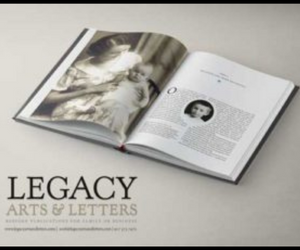A Treasure Trove for Future Generations
The Rosy Periwinkle
The rosy periwinkle doesn’t look like a plant that’s worth $200 million a year. Except that its flowers are pink, it resembles the blue periwinkle commonly used as ground cover.
To the desperate parents of childhood leukemia victims, however, the rosy periwinkle is worth all the money in the world. Chemicals found only in these plants have a unique ability to keep certain kinds of cancerous cells from reproducing. These chemicals have helped increase the survival rate for childhood leukemia from 10% to 95%.
The economic value of these medicines is close to $200 million a year. Who can imagine the joy and relief they’ve provided to young patients and their parents?
Impressive as the rosy periwinkle is medically and economically, its importance doesn’t end there. Conservationists also prize the rosy periwinkle because it’s an excellent example of why biodiversity is important.
The rosy periwinkle is native to the island of Madagascar. This island off the coast of Africa has a rapidly expanding population, and many of the native plants and animals have vanished as cities and towns overtake their habitat. The rosy periwinkle escaped extinction, but what if it had been lost before we ever knew about its extraordinary medicinal properties?
Scientists know that countless other useful compounds await discovery.
Michael Novacek, vice president of the American Museum of Natural History (AMNH), believes that no matter how insignificant a species may appear, it could have great value..
As it is, more than a quarter of all the prescriptions from pharmacies come from chemicals originally discovered in plants. Another 13% come from microorganisms, and 3% come from animals. Yet these materials are only a minuscule fraction of the ones that are almost certainly available. We just haven’t studied them yet.
In most cases, we haven’t studied them yet because we don’t even know they’re there. As Novacek puts it, we suffer from “unacceptable ignorance.” Up to now, he says, we’ve named 1.6 million species, but this is far, far short of the total. Scientists estimate that there are between 10 million and 100 million species on earth today, and we don’t even know for sure which figure is more likely.
How can we be so unsure about the number of species? The answer is that in the rain forests, life exists in a profusion and complexity that’s hard to imagine. In the Amazon, for example, one scientist found 43 different species of ants on a single tree. To put that figure in perspective, that’s more than the number of ant species in all of England.
The Destruction of Habitat and Its Impact
What worries conservationists is that destruction of habitat is causing thousands of species to go extinct each year. Says Novacek, “The loss of tropical rain forest is proceeding at an extraordinary rate. We’re losing rain forest equivalent in area to the state of Florida each year.”
In 1993, Novacek and his colleagues at the AMNH established the Center for Biodiversity and Conservation. “It’s purpose,” says the Center’s Director, Dr. Francesca Grifo, “is to focus the museum’s broad scientific and educational expertise on biodiversity conservation.” The Center also trains future scientists from around the world so there will be more specialists available to undertake this work.
Because of the work of these dedicated people, future generations may benefit from many other organisms just as wonderful as the rosy periwinkle.
Search Blogs
Latest Posts
Russia’s Unusual New Method Of Attack: Fake Bomb Threats
https://www.fairobserver.com/russian-newsrussia-news/russias-unusual-new-method-of-attack-fake-bomb-threats/ Publication – fairobserver.com
The Russian Occupation: a Ukrainian Political Prisoner’s Ordeal
https://townhall.com/columnists/mitzi-perdue/2024/04/06/the-russian-occupation-a-ukrainian-political-prisoners-ordeal-n2637446 Publication – townhall.com
“Bucha”: A Film About Torture, Rape, and Other Atrocities That Regular People Can Watch
https://foreignpress.org/journalism-resources/bucha-a-film-about-torture-rape-and-other-atrocities-that-regular-people-can-watch Publication – foreignpress.org
Brushes Against Bullets
https://www.kyivpost.com/post/30040 Publication – kyivpost.com
Subscribe to Updates
About Author

Mitzi Perdue is the widow of the poultry magnate, Frank Perdue. She’s the author of How To Make Your Family Business Last and 52 Tips to Combat Human Trafficking. Contact her at www.MitziPerdue.com
All Articles
A Contrarian Investment that Could Be Just Right for You
A Contrarian Investment that Could Be Just Right for YouSuppose for a moment that you’re an investor. Not just any investor. In this case you are Peter Hughes. You are a real person, although in fact Hughes is not your real name. Here’s what’s going on with you,...
Knowledge Services: Crucial in Today’s Knowledge Economy
Knowledge Services: Crucial in Today's Knowledge EconomyIf you’re beautifully organized, you can quickly find all your documents when you need them. However, if you’re like most people, the frustration and lost time spent trying to locate a needed document can be...
A Family Book Can Be a Priceless Investment
A Family Book Can Be a Priceless InvestmentImagine something terrible for a moment. If you lost your memory, as in Alzheimer’s, you would have lost one of the most basic factors that makes you you. Without memory, you’d have trouble making good decisions; you’d no...
The Soft Issues Are Really the Hard Issues!
The Soft Issues Are Really the Hard Issues!If you’re part of a business family and you’re also a parent of a school age child, which would be easier for you to do? Be honest! Choice A: Have the Sex Talk with your child Choice B: Have the Money Talk with your child...
Trust: How to Nurture a Key Factor in Family Success
Trust: How to Nurture a Key Factor in Family SuccessTRUST: HOW TO NURTURE A KEY INGREDIENT FOR FAMILY SUCCESS What does it take to be a successful multi-generational family business? Dennis Jaffe, PhD is one of the best people to ask. For more than 40 years, he’s...
Women’s Leadership Styles: There’s a Lot to Learn!
Women's Leadership Styles: There's a Lot to Learn!Women in family businesses face a particular set of distinct challenges when it comes to leadership style. Heather Powell, a family business coach for women and couples, has an impressive track record of dealing with a...






